How to Improve Gum Health
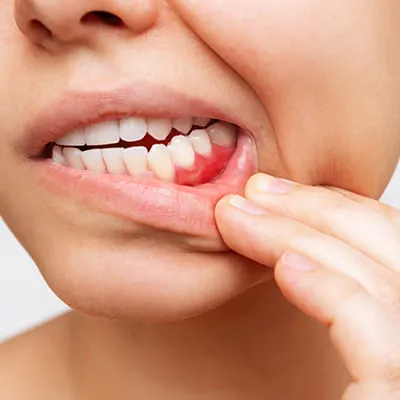
Gum Health is essential for overall oral health. Gum problems, such as gum disease, can affect not only the appearance of your smile but also your ability to chew and speak comfortably. In this article, we’ll explore the best gum disease treatments, effective dental care tips, and how to keep your gums healthy and strong. Whether you are dealing with gum inflammation or seeking to prevent gum issues, this guide will help you take care of your gums for a healthier smile.
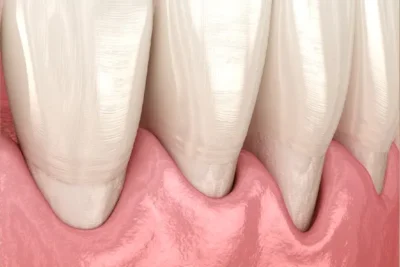
What is Gum Disease?
Gum disease (also known as periodontal disease) is a common condition that affects the tissues surrounding and supporting your teeth. It begins with inflammation of the gums (gingivitis) and can progress to more severe forms, such as periodontitis, which can lead to tooth loss if left untreated.
There are two main stages of gum disease:
- Gingivitis: The early stage of gum disease, which causes redness, swelling, and bleeding of the gums. This stage is typically reversible with good oral hygiene.
- Periodontitis: If gingivitis is left untreated, it can develop into periodontitis, where the infection spreads deeper into the tissue and bone, causing more significant damage.
Fortunately, gum disease treatment can help manage and even reverse the early stages of the condition. Let’s explore the best gum treatments available to improve gum health and prevent further damage.
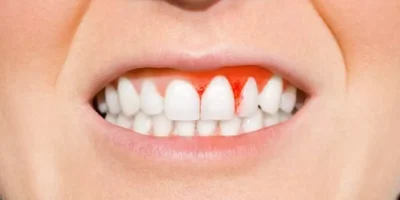
Best Treatments for Gum Disease
1. Professional Cleaning (Scaling and Root Planing)
One of the most effective treatments for gum disease is professional cleaning, which involves scaling and root planing. This treatment is typically done by a dentist or dental hygienist to remove plaque and tartar from below the gum line.
- Scaling: This process removes plaque and tartar from the surfaces of the teeth and beneath the gums.
- Root Planing: The roots of the teeth are smoothed to remove bacteria and promote the reattachment of healthy gum tissue.
This deep cleaning procedure can help treat gingivitis and early-stage periodontitis by reducing bacteria and inflammation. It may require more than one visit to the dentist, depending on the severity of the gum disease.
2. Antibacterial Treatments
To support gum disease treatment, your dentist may recommend the use of antibacterial mouthwashes or topical treatments. These products help reduce the bacteria that contribute to gum infection and promote healing.
- Antibiotic gels: These are applied directly to the gum pockets after scaling and root planing to target bacteria.
- Antibacterial rinses: Mouthwashes that help reduce bacteria and promote gum health, providing an extra layer of protection against gum disease.
Using these treatments in combination with proper oral hygiene can significantly improve gum health and prevent further damage.
3. Gum Surgery
For more advanced cases of periodontitis, when the gums have receded significantly or the damage to the bone is severe, gum surgery may be required. The most common types of gum surgery include:
- Flap surgery (pocket reduction surgery): The gums are lifted back to remove tartar and bacteria from deep pockets. The gums are then stitched back into place to reduce the size of the pockets.
- Bone grafts: If bone loss has occurred, bone grafting may be used to help regenerate lost bone tissue and restore the tooth’s stability.
- Soft tissue grafts: If the gums have receded, soft tissue grafts may be used to cover exposed roots and restore gum tissue.
These surgical treatments are usually reserved for severe cases of gum disease and are intended to restore gum health and prevent further tooth loss.
4. Laser Therapy
Laser therapy is a minimally invasive treatment option that uses focused laser light to target and remove bacteria from infected gum tissue. This treatment promotes healing while minimizing discomfort and recovery time.
Laser gum therapy can be used in conjunction with other treatments, such as scaling and root planing, to improve the effectiveness of gum disease treatment and speed up the healing process.
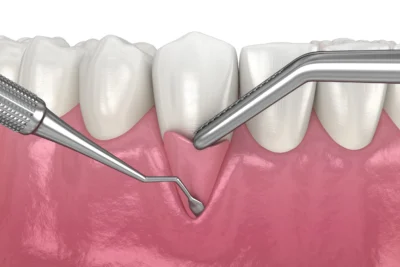
Dental Care Tips for Gum Health
Preventing gum disease is always better than treating it. Here are some essential dental care tips that can help keep your gums healthy:
1. Brush and Floss Regularly
Brushing your teeth at least twice a day and flossing daily are the most effective ways to prevent plaque buildup and gum disease. Make sure to use a soft-bristled toothbrush and fluoride toothpaste. Be gentle when brushing to avoid damaging your gums.
- Tip: Consider using an electric toothbrush for better plaque removal and more consistent brushing.
2. Use an Antibacterial Mouthwash
Incorporating an antibacterial mouthwash into your oral care routine can help reduce bacteria and keep your gums healthy. Look for a mouthwash that specifically targets gum health and reduces plaque buildup.
3. Quit Smoking
Smoking is a significant risk factor for gum disease. It weakens your immune system and reduces blood flow to the gums, making it harder for your body to fight off infection. Quitting smoking can improve your gum health and reduce your risk of developing periodontal disease.
4. Eat a Healthy Diet
A balanced diet rich in vitamins and minerals, particularly vitamin C, can help support your gum health. Avoid sugary foods and drinks that can promote plaque buildup and bacteria growth.
5. Regular Dental Check-ups
Visiting your dentist regularly for check-ups and professional cleanings is essential to maintaining healthy gums. Your dentist can detect early signs of gum disease and provide timely treatment to prevent further complications.
To learn more about how to care for your gums and its impact on overall oral health, you can read our article on Dental Implants and how gum health affects the success and outcomes of the procedure.
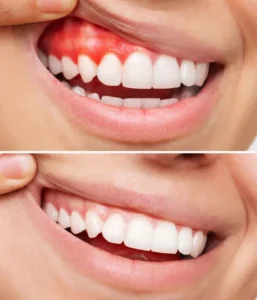
Periodontal Treatment for Long-term Gum Health
For patients with more advanced gum disease, periodontal treatment is necessary to address the infection and prevent tooth loss. In addition to professional cleaning, your dentist may recommend ongoing maintenance to keep your gums healthy and prevent future problems.
Periodontal Maintenance:
After undergoing periodontal treatment, it’s important to maintain regular visits to your dentist for cleanings and evaluations. Periodontal maintenance involves more frequent cleanings and assessments to ensure that your gums stay healthy and free of infection.

Conclusion
Taking care of your gums is essential for overall oral health. By following the dental care tips outlined above and seeking timely gum disease treatment, you can improve gum health and enjoy a healthy, beautiful smile. Whether you are dealing with early-stage gingivitis or need more advanced periodontal treatment, there are effective options available to address gum problems and restore your gum health. Always consult with your dentist to determine the best treatment plan for your needs.
Please enter your data correctly
We will contact you as soon as possible.

